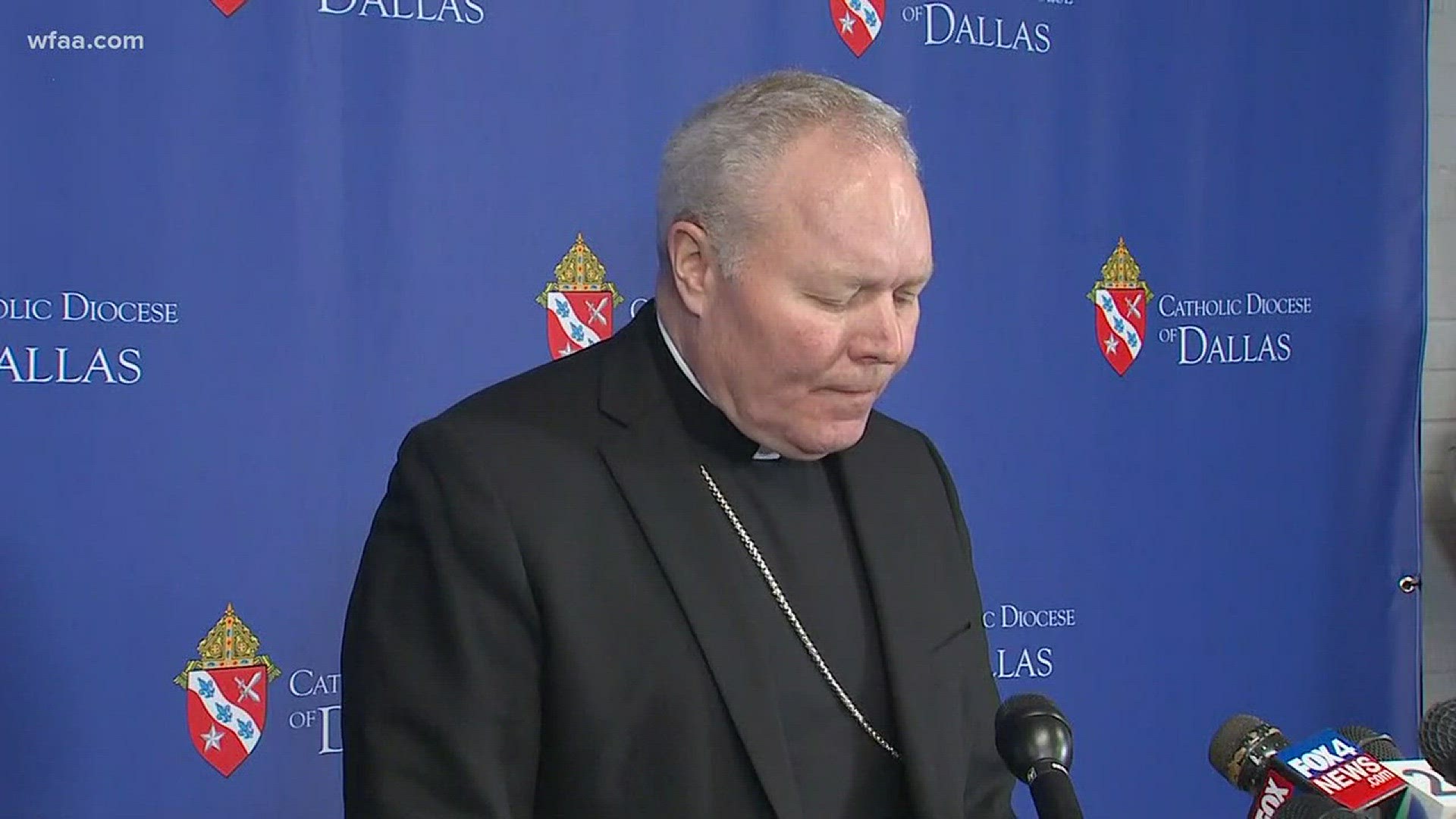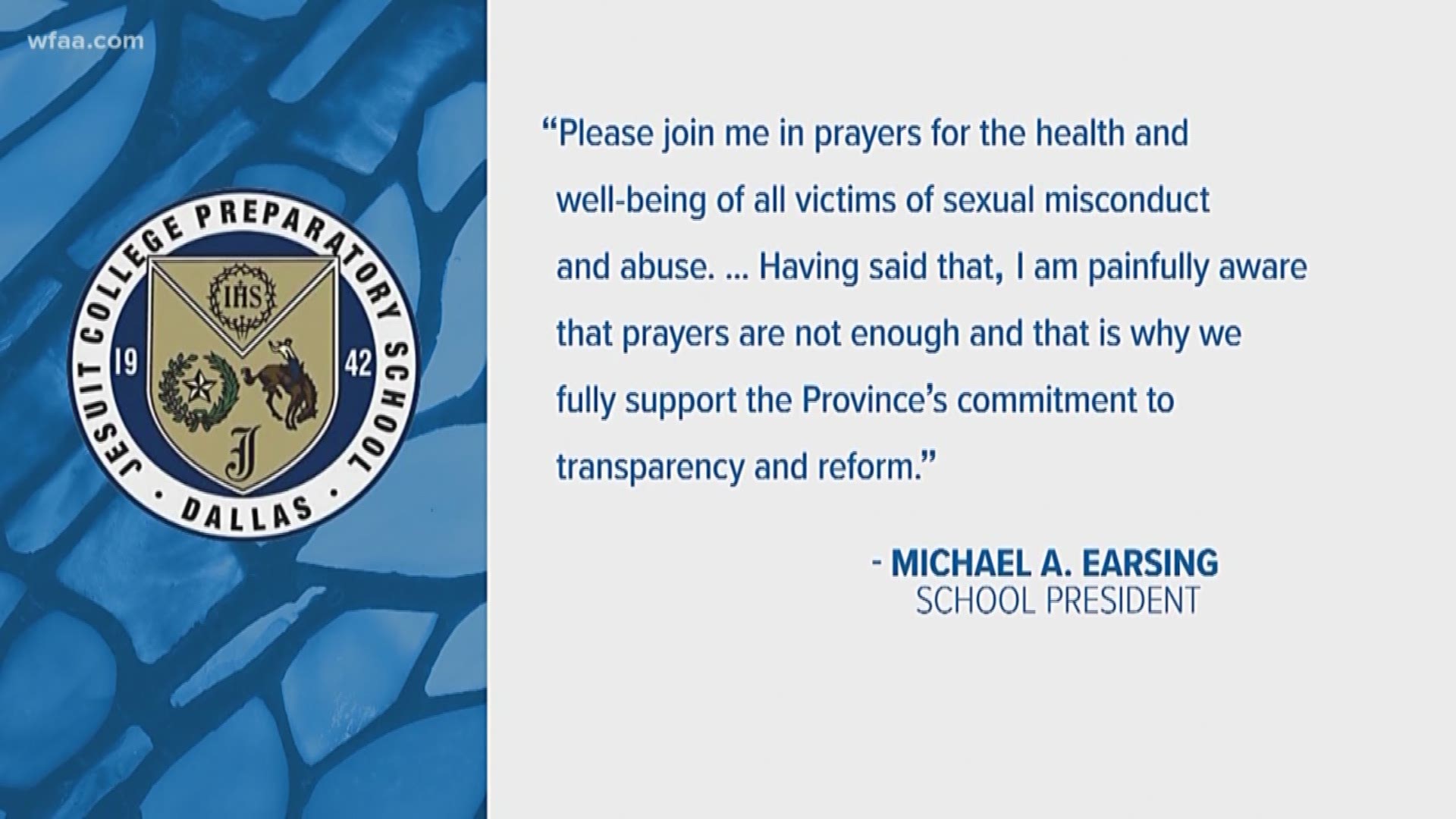Catholic dioceses on Thursday are releasing the names of priests who have been credibly accused of sexual abuse over the years.
But what does credibly accused mean?
The Catholic Diocese of Fort Worth, which established a list of credibly accused priests in 2007 and still maintains the list, describes the "credibly accused" as this:
This determination is not a finding that the alleged abuse actually occurred. Rather, it is a finding that there is reason to believe that the alleged abuse occurred. The standard that the Diocese of Fort Worth uses in making this determination is a lesser standard than that required by our civil or criminal legal systems. As such, the inclusion of an individual on this list is not a final determination under civil or criminal laws that abuse actually occurred. Rather, it is a finding used to remove the accused from ministry in this diocese permanently, unless the accused is subsequently cleared by the facts.
In a letter to parishioners in October, Fort Worth Bishop Michael Olson went into more detail about how the diocese investigates allegations of abuse.
After reporting the allegation to police or Child Protective Services, the Diocese then investigates whether the allegation is "plausible," Olson said. If the allegation is deemed plausible, Olson wrote, the accused person is removed from the church while the Diocese investigates "whether there is reason to believe" the allegation happened.
Olson, with help from a diocese conduct review board made up of lay members, makes the decision whether there's reason to believe the allegation.
The USA Central and Southern Province of Jesuits – which, in December, released its own list of credibly accused priests, including 11 with ties to Jesuit College Preparatory School in Dallas – offered a similar explanation of credible accusations.
"First, inclusion on this list does not imply that the allegations are true and correct or that the accused individual has been found guilty of a crime or liable for civil claims," Provincial Superior Ron Mercier wrote in a letter to the province about the allegations.
Mercier wrote that, in many instances, allegations were made several years or decades after the incidents, "which makes it difficult to be assure the truth is known."
The USA Central and Southern Province of Jesuits also used a review board, composed of lay members, to help investigate the allegations against the priests, according to Mercier's letter.


